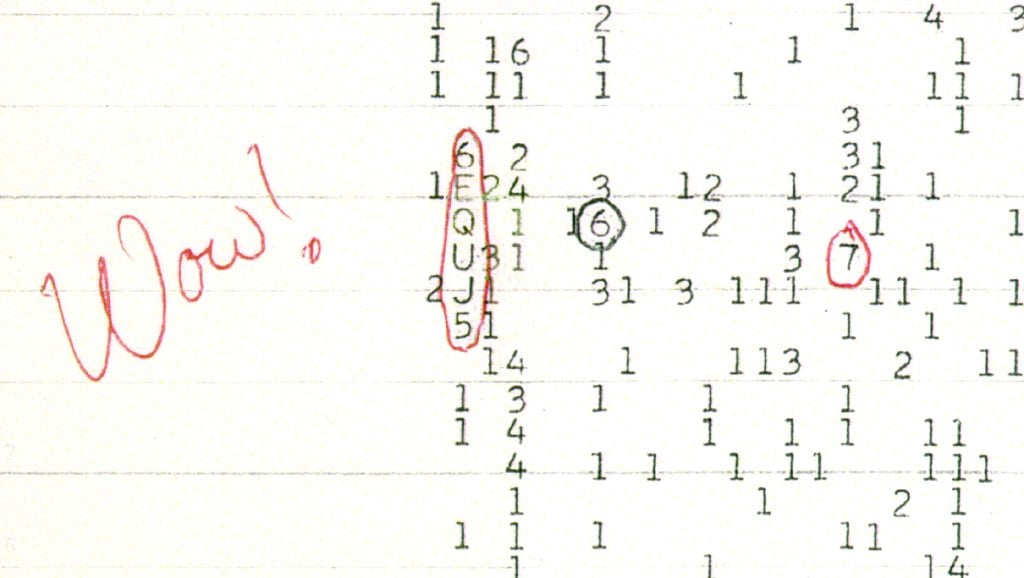In radio astronomy, there are lots of natural radio signals to observe. The glow of hydrogen gas, the swirl of electrons along a magnetic field, or the pop-pop-pop of pulsars. These signals usually have a very natural character to them, so astronomers can distinguish them from the artificial chirps and chatters of terrestrial sources. But when you're looking for the signals of alien civilizations, things can get more tricky. They should have an artificial character similar to the radio signals of humans. So how can astronomers distinguish between the distant artificial signal and the local ones?
It's not an easy challenge. Even natural signals can be confused with artificial ones. For example, back in 2007, astronomers began detecting bright radio pulses known as fast radio bursts (FRBs). These millisecond-long bursts are likely caused by magnetars, though there is still much we don't understand about them. After they were discovered, astronomers at Parkes Observatory combed through their old data and found radio chirps similar to FRBs known as perytons. For a while, astronomers wondered if these were similar phenomena, but they soon figured out that perytons were caused when hungry astronomers opened a microwave oven while it was still running so that the oven released a short radio chirp before stopping. By the way, it's perfectly safe to do that as long as you aren't at a radio observatory.
The SETI project specifically looks for unusual signals with an artificial character, and they find lots of them. Everything from cars starting to Starlink satellites can create a strong artificial signal. Usually, the way to distinguish between a local source and a distant one is to move the telescope "off-target" a bit, then back to the source. If you've ever seen the movie Contact, this is what the astronomers do to confirm the alien signal is coming from Vega. The problem with this method is that it takes time, meaning it can't be used for short-lived signals. But now a team has developed another method.
The technique is similar to the way we can distinguish stars from planets with the naked eye. Light passing through our atmosphere is refracted slightly by the turbulent motion of air, causing stars to twinkle. Since planets are much closer than stars, they aren't a single pinprick of light, so they don't twinkle. For distant radio sources, their light passes through interstellar gas which causes them to flicker in brightness, which astronomers call scintillation. Local radio sources don't scintillate.
So the team developed a software package that looks at the scintillation of artificial radio sources. If a radio source flickers on a timescale of less than a minute, then it is likely not terrestrial.
There are some limitations to this approach. For one, a radio source needs to be at least 10,000 light years away to exhibit scintillation, so alien signals from nearby stars wouldn't pass this test. For another, there are a few human radio sources that can mimic scintillation. But even though the method isn't perfect, it is a great way to filter out the bulk of Earth-based intelligent signals, which will let astronomers focus on those that just might be a message from an alien civilization.
Reference: Brzycki, Bryan, Andrew Siemion, and Imke de Pater. " On Detecting Interstellar Scintillation in Narrowband Radio SETI." *American Astronomical Society Meeting Abstracts*. Vol. 55. No. 2. 2023.
 Universe Today
Universe Today

